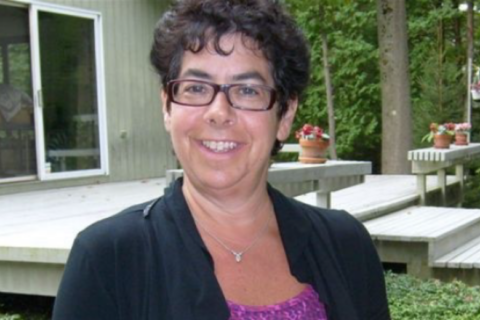Six Maryland jurisdictions, including Howard County, already have a voluntary 911 registry, intended to help police handle calls that involve people with a range of disabilities, including autism.
Now Montgomery County is continuing to discuss the merits of similar legislation, where people could sign up to provide information to police and first responders ahead of time. The idea is that when those first responders arrive at a scene, they would know, for example, that a person at the address is deaf or might have delayed response times or be nonverbal.
On Monday, members of two Montgomery County Council committees — Public Safety and Health and Human Services — met to discuss some of the issues that have cropped up.
Council member Gabe Albornoz, who is also the chair of the Health and Human Services Committee, had questions about how the information would be provided to first responders during an emergency.
“How is that communicated to officers who are actually responding and who are on the ground?” he said.
Another issue is privacy. Montgomery County Police Chief Marcus Jones explained that police and first responder dispatches are broadcast over the air on police channels, and the public has access to that information on scanners and via the internet.
Council member Laurie-Anne Sayles said that gave her pause.
“I wouldn’t want something that I’m dealing with, involving a child, broadcast publicly and it ends up on Twitter — and that child has to go back in to school,” she said. Sayles added she’d want further discussion on how that could be handled.
Upon arrival to a potential scene, Jones said, “We would have to give instructions to responding personnel. They would have to look at their computer-aided dispatch on the screen.”
Council member Sidney Katz, who chairs the Public Safety Committee, wondered how that would affect response times and said that is something that would have to be explained to the public. He imagined that could generate complaints from people who see an officer arriving to an emergency, stopping to read something in their patrol car.
“Even though it’s for a legitimate reason,” Katz said, it could seem like an unnecessary delay in an emergency “when every second seems like a month.”
Assistant Police Chief Darren Francke said, if enacted, the bill could provide “really extraordinary” information for officers who would have a chance to “think through” their training while heading to a call for service, and how they would put that into effect at the scene they are about to encounter.
In written testimony, the Silver Spring Justice Coalition opposed the bill, stating that, “Officers must be prepared to interact with disabled residents regardless of what information is in a registry, and the burden should not be on people with disabilities to provide this information in advance.”
Jeneva Stone, who described herself as a Montgomery County parent in her written testimony, also opposes the bill. Stone said she and her adult son — whom she described as having “multiple disabilities” — are members of an organization, “People on the GO,” that raised concerns about statewide legislation in Annapolis during the last session.
Among the questions Stone raised in her written testimony: “What is the point of having a registry if first responders cannot be held responsible for any negative consequences that might occur in the case of a person who chose to be on the registry?”
The executive director of the Autism Society of Howard County, Melissa Rosenberg, forwarded testimony in support of the Montgomery County bill. Rosenberg’s letter referenced what she said were “many positive stories” in which the partnership of the police, school system, the Autism Society and others worked “to safely bring a child or young person home. She referenced one instance in which a “nonspeaking child found wandering in downtown Columbia” was reunited with their family within 30 minutes.
Another example cited was the case of a child found near a retaining pond who was also returned home safely.
Rosenberg explained in her letter that “a high percentage of children with autism wander” or “elope,” meaning they leave home without their families noticing. According to Rosenberg, “74% of autistic children who elope/wander and die do so by drowning.”
The members of the Public Safety and the Health and Human Services Committees plan on another work session before making any recommendations to the full Council.








